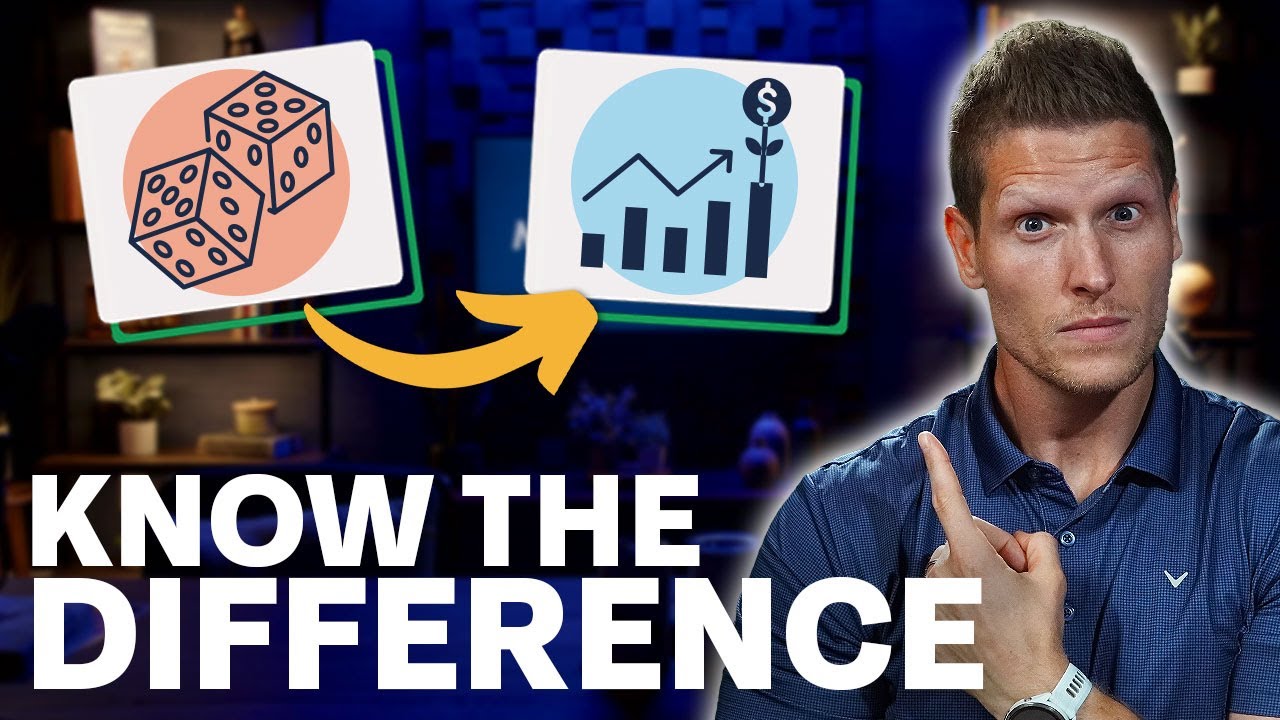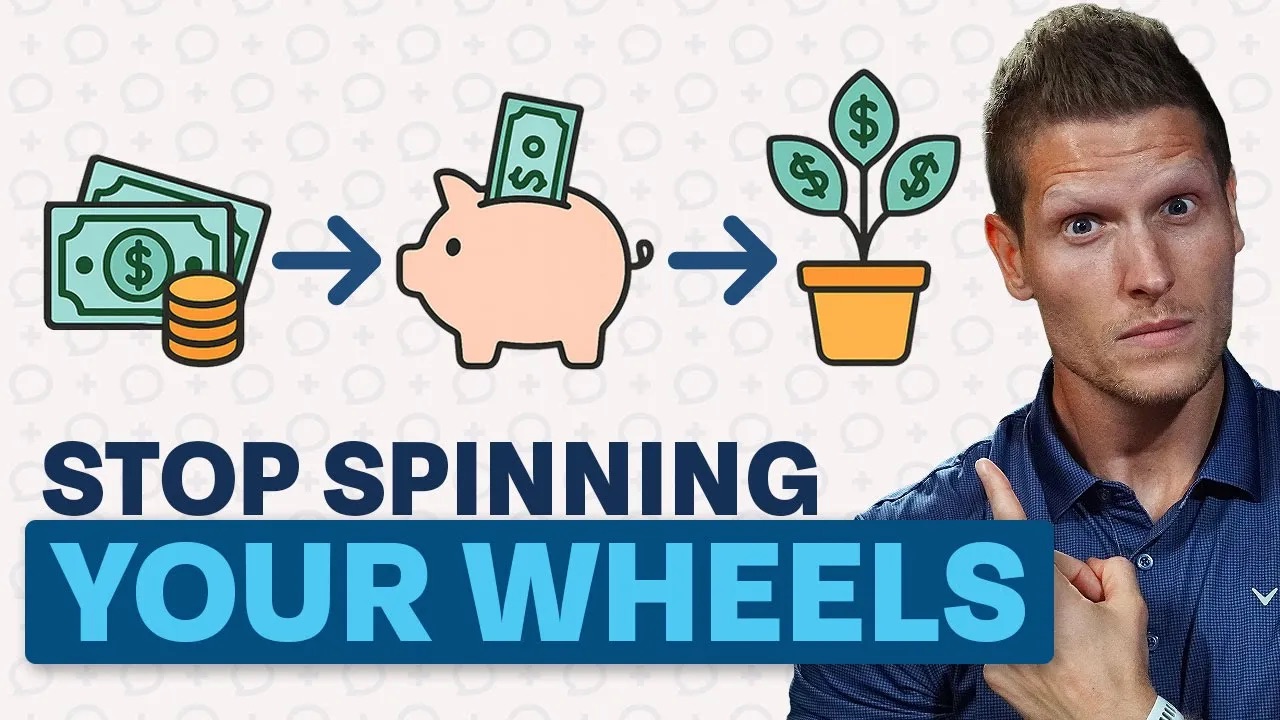All right, we've got another question here. This is from Money Guy Tumbler owner, so I'm guessing he already has one, which is fantastic. Or he's trying to get us to notice it. He's manifesting it. He's like, you know, if I put this title, I'll trick them. He says, "Are backdoor Roths important for everyone? He's in a high-earning household over the regular Roth limits and we're wondering if backdoor is worth it, or if we should keep it simple and increase our 401(k) contributions. Thanks."
Well, you know, are backdoor Roths important for everyone? I wouldn't be so bold as to say that anything in the financial world is absolutely important for everyone. And that's not true. An emergency fund is pretty important for everybody. However, backdoor Roths and tax-free money more specifically are fantastic. It's wonderful. It's like some of the most valuable money that you can have. And Roth dollars, tax-free dollars, are so valuable the government says, "Hey, if you make over a certain income, we don't even want you to be able to do this. And even if you can do it, we want to limit how much you can put in here. You can't just go hog wild and put as much in there as you can." So the fact that the government puts those two restrictors on it means it must be pretty valuable.
So our stance is because the backdoor Roth is a tool that's available, if someone is in the situation where they can take advantage of it and they're following the
Financial Order of Operations... Brian, you want to hold up the
Financial Order of Operations? It's a step five item, right? Like a lot of people think, "Oh, okay, Roth IRA, HSA, that's a step five thing." I would argue that backdoor Roths for my higher-income folks is also step five, assuming that your account structure will substantiate it.
For those of you who don't know, the backdoor Roth is just this idea that if you have no other IRA assets, you don't have SEPs or SIMPLEs or IRA rollovers or anything like that, and the only IRA that you have is a traditional IRA and a Roth IRA, you can contribute up to $6,500 if you're below 50 to a traditional IRA, not take the tax deduction, so it's an after-tax contribution. And then you can convert that $6,500 to Roth, and you can do it tax-free, assuming there are no other IRA assets that would come into the pro-rata rule.
Well, if you are at the stage of life and you're following the financial order of operations, and you have the income to do that, I think, in my opinion, it's crazy not to take advantage of that, because if you are higher income, it's probably likely that if you were no longer able to do direct Roth IRA contributions, you're probably in that world where pre-tax 401(k) contributions make the most sense for you. Your marginal brackets are probably above 30% when you combine the federal and the state. So, if that's the case, it makes sense to do your 401(k) but do the pre-tax version as opposed to the Roth version.
The only way, if you're doing that, to go get those tax-free dollars is either backdoor Roth or HSA. So, is it important for everyone? I mean, I just love tax-free dollars. I think they're great. I do want to draw attention to the pro-rata rule because, you know, that is something that you touched on, you said the word, but a lot of people don't realize because I had even a friend who's been... We've been trading tech back and forth, and he was like, "Good news, I found out I can still do the backdoor Roth even with a simple IRA." And I was like, "Huh." And I was like, "Yeah, you know there's never been a restriction on you being able to do a backdoor Roth contribution with a SIMPLE IRA. The problem is it just wouldn't be a tax-free transaction." Because when we talk about the pro-rata rule, what we're talking about is the government makes you gather up any IRA assets. I don't care if it's a SEP IRA, simple IRA, rollover IRA, traditional IRA. You have to group them all together. The only one they let you kind of carve out is inherited IRAs. But if you have any of those IRA assets, they say, "Yeah, anybody can do a Roth conversion strategy, but you're going to have to pro-rata the basis and the taxability of this by those." That's why usually this strategy only works well if you want to make it tax-free by people who don't have any of those IRA assets. And the easy way to get rid of those IRA assets is to roll them into 401(k)s, 403(b)s, other things that are different code sections of the IRS and those qualified plans.
But here's why, getting back to the questions from Privileged Tumbler owner... Money Tumbler, whatever his witty title was, is that you're high income. So that's also going to lead to a high tax rate, high tax situation. So that's why it's like Bo said, you're probably going to want to favor those tax-favored things like getting the deduction now because you're hopefully going to be in a lower tax bracket in retirement. But when you start paying a lot of taxes, you're going to be like, "That's that government. I really... I want to be a tax-free millionaire. I'd love to be a tax-free millionaire. Is there any way I can be funding assets to a tax-free account?" And then you remember, "Oh, those guys were talking about. Not only can I load up my 401(k) and stick it to the man by lowering my taxable income legally with this employer retirement plan, but also because I don't have any IRA assets, I could go contribute to a traditional IRA and then convert it to a Roth completely tax-free. Yeah, let's do that so I can get some of that tax-free millionaire status."
That's what's going to happen. And that's why I want people to go do their research and figure out if you can. If you qualify, it is a gauntlet, and that's why if you are successful, maybe one of those things that you consider taking the relationship to the next level. Because one of the things we do as a value-add, not only do we help facilitate the transaction, but we also review tax returns to make sure your CPA actually did the 8606. The... I mean, even my own CPA, I love them. She is awesome. But even this year, I was like, "You know, those 8606s need a little more love. We've got to update them." So, this stuff does have some moving parts, and there are letters at the IRS, you know, the scary, scary letters the IRS sends. And they're... They're usually... We can fix them for our clients. But you just need to have somebody in your corner that can help navigate all that. Yep.













